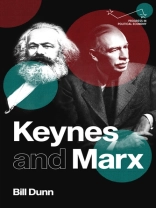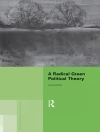Keynes was an elitist and pro-capitalist economist, whom the left should embrace with caution. But his analysis provides a concreteness missing from Marx and engages with critical issues of the modern world that Marx could not have foreseen. This book argues that a critical Marxist engagement can simultaneously increase the power of Keynes’s insight and enrich Marxism. To understand Keynes, whose work is liberally invoked but seldom read, Dunn explores him in the context of the extraordinary times in which he lived, his philosophy, and his politics. By offering a detailed overview of Keynes’s critique of mainstream economics and
General Theory, Dunn argues that Keynes provides an enduringly valuable critique of orthodoxy. The book develops a Marxist appropriation of Keynes’s insights, arguing that a Marxist analysis of unemployment, capital and the role of the state can be enriched through such a critical engagement. The point is to change the world, not just to understand it. Thus the book considers the prospects of returning to Keynes, critically reviewing the practices that have come to be known as ‘Keynesianism’ and the limits of the theoretical traditions that have made claim to his legacy.
Cuprins
Introduction: towards a critical but constructive appraisal of Keynes’s thought 1 Keynes’s life and times 2 Keynes’s philosophy 3 Keynes’s politics 4 Economics before the
General Theory 5 Keynes’s
General Theory 6 Unemployment: making Marxist use of Keynes 7 Money 8 Profit and interest 9 Money and states in capitalism’s uneven development 10 Keynesianism in practice? 11 Keynesian theory after Keynes 12 The decline of Keynesianism and the prospects for return Index
Despre autor
Bill Dunn is Associate Professor for the Department of Political Economy at the University of Sydney












